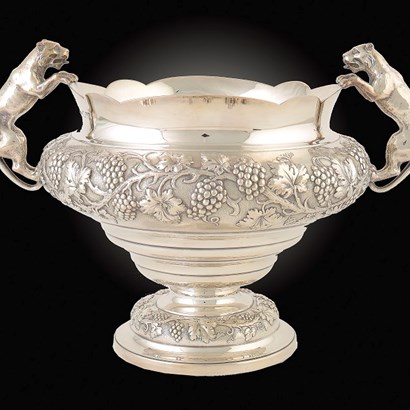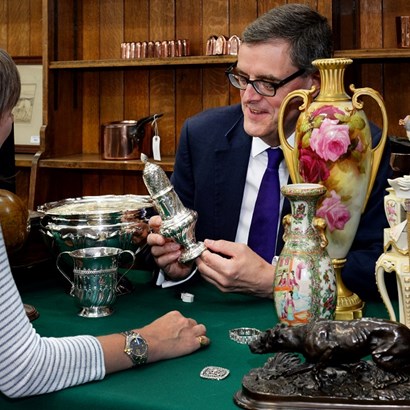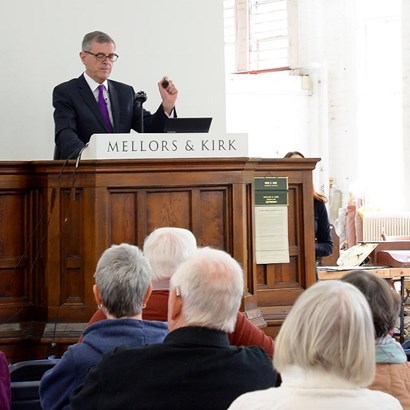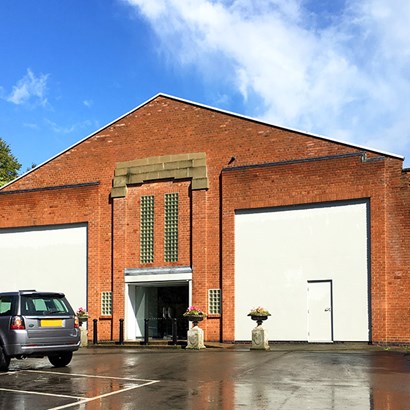Auction Insights
Are David Winter miniature cottages worth anything?
Perhaps it was their ‘Olde World’ charm but when giftware that is in reality tacky, or kitsch is marked as a ‘collectable’ they turn out to be anything but collectable.
Colourful china wall plates, Lladro figures those angelic Hummel pottery children are three examples. To these add 1960s Pendelfin rabbits and miniature cottage ornaments. Virtually everyone, it seems, has fallen out of love with all such bric-a-brac.
Mellors & Kirk is about to sell a huge collection of around 200 David Winter cottages that were produced from 1980 to 2002. The collection was formed by a local couple one by one as each was issued and represents a considerable outlay. Even with worldwide live online bidding it will almost inevitably sell for much less than it was once worth. But does that matter? The answer is ‘No’ if it was bought for pleasure. Subtle ploys such as the ‘Limited Edition’ or nudging people into buying by saying that such and such is about to go out of production, are old tricks of the trade that encourage people to think they have invested, rather than spent their money. It is a nice touch that for ceasing production read instead “retired”. How can a David Winter cottage retire? Models of Anne Hathaway’s cottage and such like evoke Shakespeare’s England but not his use of English!
By the end of the 1970s the market for those awful china wall plates was almost satiated so when they appeared in 1980 David Winter’s twee cottages were an instant success, both in the UK and America. Made of a refined gypsum plaster and realistically painted they are a Walt Disney evocation of England from the Tudor to Victorian periods. They originally cost about £7 to10. Soon a Collectors Guild was formed – another marketing tactic much favoured by other manufacturers, including Moorcroft and Royal Crown Derby. David Winter had over 200,000 Guild Members in the USA alone. In 1991 one David Winter cottage sold for a record $42,000 and at a Convention at Long Beach, California a collection of 146 sold for a ludicrous $200,000.
Not surprisingly the company grew quickly, as it transpired too quickly. After several changes of ownership it and its main competitor Lilliput Lane that was based in the Lake District, both ceased production in 2002.
David Winter was born in 1958 at Catterick. His father was an army officer and his mother Faith Winter, a professional sculptor. The idea for the quaint cottages which include country manors, parsonages, farmhouses and churches followed his meeting with John Hine in 1979 and a suggestion that a Denby stoneware butter dish in the form of a house had been a popular line some years earlier. David Winter’s first studio was converted coal shed, a far cry from the £20 million turnover the business would enjoy a few years later. In 1982 the closely similar creations of the rival Lilliput Lane company appeared. These were sold in high street shops such as Ratners, the name by which it was known until 1991. That some of David Winter’s models are rarer than others now seems to make relatively little difference to the value and is a far cry from the sums quoted in price guides published in the 1990s. Models such as The Grange and Provencal II, Chichester Cross and the Coaching Inn changed hands privately for prices of between £2,000-5,000 and would have had collectors bidding furiously at auction. Some 4,000 boxed, ready to sell examples of The Grange were destroyed by John Hine who, according to an interview he gave in 1992, did so “because the metal balcony kept falling off.”
From seeing so many of these models displayed together some are undeniably attractive at one level, but it is only when people become convinced – just as they did with tulip bulbs in the 18th century – that they’ll make money by investing, that they become a commodity to be traded. Remember that, and you’ll avoid a Winter of discontent!
< Back to Auction Insights



